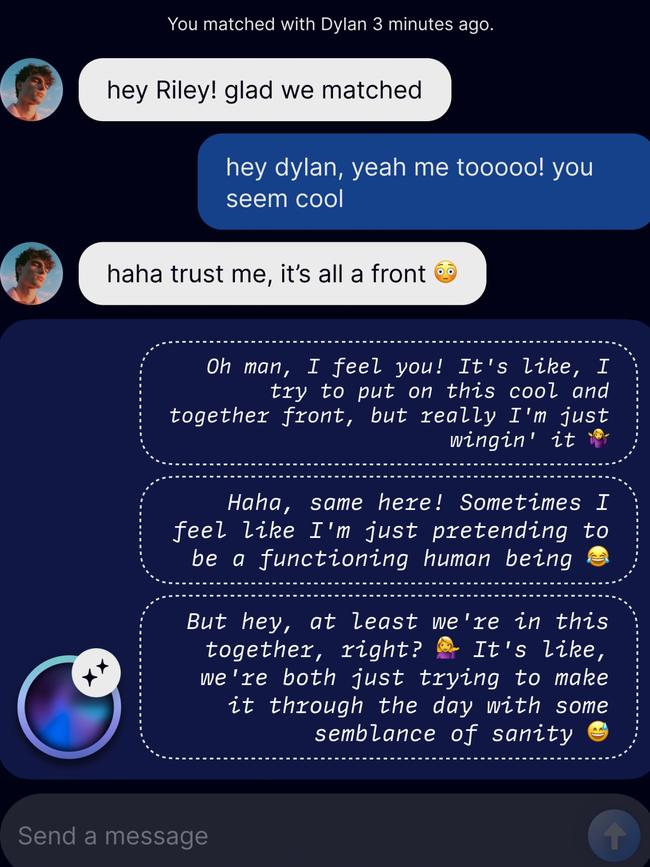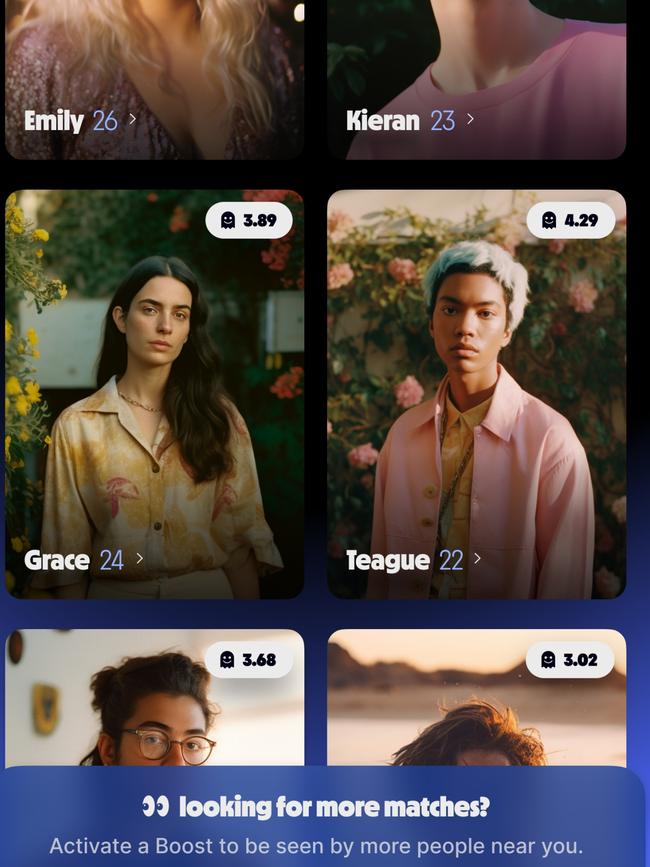Could your next partner be an avatar?
Science fiction experts are wondering whether humans are capable of falling in love with an AI-powered product.

It’s been 10 years since Theodore Twombly fell in love with his operating system.
Theodore, played by Joaquin Phoenix in 2013 film Her, fell for the digital voice assistant who got to know him as she read his emails, answered his questions and provided insights on his life.
Samantha, assigned to the fictional Theodore after checking if he was sensitive or anti-social and whether he had a good relationship with his mum, was pitched as a product of the world’s first artificial intelligence-powered operating system.
“The DNA of who I am is based on all the millions of personalities of the programmers who wrote me but what makes me me is the ability for me to grow from all my experiences,” she tells him.
The movie paints a vivid picture of the future – and one that might not be so far away. Falling in love with an AI-powered product is not as unrealistic as it might have been when Sam met Theo.
Queensland University of Technology professor in robotics Jonathan Roberts says: “Science-fiction is incredibly useful as it allows us to imagine what we could create. It’s not that it’s a bad thing but it often leads to disappointment.”

Asked whether AI is capable of love or humans are capable of falling in love with a form of the technology, Professor Roberts says it’s possible. But the love humans might share with AI will be different to love for other people, he says. It’s more likely to resemble the affection people feel for their four-legged friends.
“Your pet doesn’t do anything useful for you, but people say they have a relationship with those pets. They talk to them, there is a real relationship there,” he says.
Artificial intelligence is increasingly moving into the average person’s home, used to connect and adapt smart appliances to suit our preferences and enhance our lives. But can AI do more than that? Can it provide love?
Humans have shown they can love people they’ve never met, religious figures they’ve never seen, animals they’ve never fully been able to communicate with and even cartoon characters written by other people.
Georgie Carroll is a book publicist at Hachette with a PhD in sociology and is an expert in fandom.
Carroll has studied parasocial – or one-sided – relationships with celebrities and characters, with a particular focus on Taylor Swift’s fan base, known as Swifties, and fans of TV series Supernatural.
One of the reasons Swift has been so successful is because “her music really speaks to the processes of growing up”, Carroll says. “There’s kind of this evolution where if you were a similar age to her when you first started listening, the albums largely track your life, and that really helps to have an ongoing connection.”
On love and AI, Carroll says it might be possible in the same way some Swifties feel a genuine connection to the popstar, but she’s not convinced an AI-generated personality can elicit true romance. And when AI is used to generate chatbots based on movies and films, fans are not fooled into engaging.
As to whether AI will be housed in a “body” or have a “face” in the near future, Roberts is not so sure. Again reflecting the dissonance between fact and fiction, Roberts says most advances in robotics will come in the form of “single-task devices”, which can perform work such as vacuuming or mowing a lawn.
“In the ideal world, in this science-fiction-painted world, we want a general-purpose robot. It’s a robot that can use your existing vacuum cleaner and lawnmower,” he says. “And it makes sense, we’ve built a world around us for humans. But having a robot physically acting in the world in a reliable way is still years away.”
Daniel Liss, the US-based CEO of social media app Dispo and dating app Teaser AI, has had a rocky relationship with AI-enhanced connections so far.


Liss launched Teaser AI, an app using artificial intelligence to create a chatbot to represent each user, in June. Before two people matched, the interested user could ask the other’s chatbot up to five questions about them.
Less than three months after it launched, Liss pulled the pin as too many users failed to understand the concept.
“Often they didn’t understand whether the person on the other side … they were speaking with was the person or whether it was AI,” he says.
“Our big takeaway, honestly, was that people were uncomfortable with the notion of the AI representing themselves.”
By mid-September, Teaser AI was shut, giving way to an app called Mila that focuses on using AI to coach users into having better conversations on dating apps. Mila could also show users how much their interests overlapped with others in a bid to find better matches.
“I think we’re contrarian to a lot of futurists. We see this as a tool to get people to meet in person,” Liss says. “Technology won’t replace the need to have in person relationships.”
Fabian Schmolck, AI solutions manager at adult pleasure company Lovehoney Group, says AI is already being used in the sextech industry.
The group has been focusing on “interpreting data and crafting individual responses based on sensory feedback, like body temperature and pulse” based on sensors in devices, he says. “Future sex toys could, for example, recognise whether you are having an orgasm and learn from your behaviour whether it should increase or decrease the intensity.”
‘It’s vital for us to remember the human touch in the equation’
Schmolck says there’s a trend now in people enjoying chatting with AI. “There are quite a few cases where influencers have digitised themselves to make themselves virtual partners. I think, for public figures, this is an interesting route to choose and we will continue to see adaptation here,” he says.
While sextech engineers are keen to leverage AI, Schmolck says the company will look to ensure a focus on human touch isn’t lost. “However, ensuring that technology complements, not overshadows, the human side of intimacy is crucial,” he says.
“While blending technology with sexual wellness opens doors to tailored and immersive experiences, it’s vital for us to remember the human touch in the equation.”



To join the conversation, please log in. Don't have an account? Register
Join the conversation, you are commenting as Logout